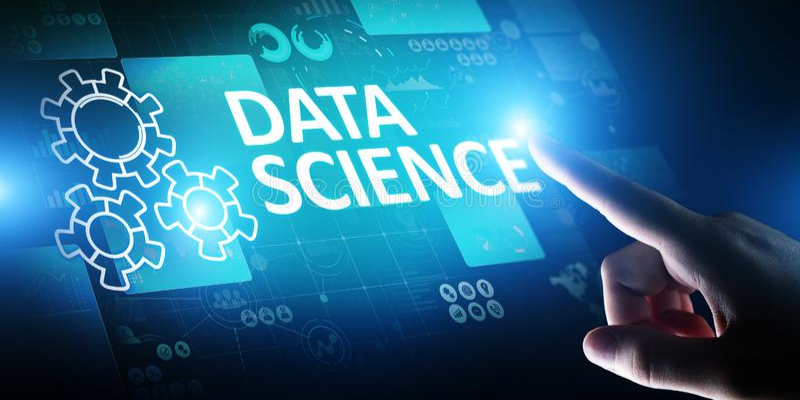Introduction
In recent years, the terms “Data Science” and “Artificial Intelligence” (AI) have gained immense popularity, often being used interchangeably. However, they are distinct fields with unique goals, methodologies, and applications. Understanding the key differences between Data Science and AI is crucial for anyone looking to explore these domains, whether for educational purposes, professional development, or simply to stay informed in the age of digital transformation. Many professionals today are enrolling in specialized training programs, such as a Data Science Course in Pune, to build expertise in this dynamic field.
What is Data Science?
Data Science is a multidisciplinary field that extracts knowledge and insights from structured and unstructured data. It combines statistical analysis, machine learning, data visualization, and domain expertise to understand patterns, predict outcomes, and support decision-making processes. Data Science is heavily data-centric, and its primary aim is to provide actionable insights by analyzing past and current data.
What is Artificial Intelligence?
Artificial Intelligence, conversely, refers to the simulation of human Intelligence in machines. It encompasses systems and algorithms that can perform tasks typically requiring human Intelligence, such as reasoning, learning, problem-solving, and decision-making. A Data Science Course in Hyderabad provides a strong foundation for understanding the key concepts that support AI development. AI’s ultimate goal is to create systems capable of independent thought and action, going beyond data analysis to interact with and adapt to their environment.
Core Components
The components of Data Science include data collection and cleaning, statistical analysis, machine learning, and data visualization. These activities help data scientists identify trends, build predictive models, and present insights effectively. In contrast, AI involves machine learning, natural language processing (NLP), computer vision, and robotics. While Data Science may use machine learning as a tool, AI contains ML and goes beyond it, leveraging techniques like reinforcement learning and neural networks to achieve higher-level objectives.
Methodologies
Data Science typically follows a linear process of defining problems, collecting and preprocessing data, analyzing it, and interpreting results. The Data Science Course in Kochi can provide a solid base of these skills, which in turn equips the participants with the ability to perform data analysis aptly. AI, however, often involves an iterative development approach, where systems are trained using datasets, refined, and deployed in real-world scenarios to learn and adapt continuously. This distinction mirrors the methodological differences between the two fields.
Tools and Technologies
The tools and technologies used in Data Science include programming languages like Python and R, SQL for database management, and visualization tools like Tableau and Power BI. Frameworks like Apache Spark and Hadoop are common for big data processing. AI relies on technologies such as TensorFlow and PyTorch for deep learning, OpenAI frameworks for building intelligent agents, and libraries like Scikit-learn for machine learning. Due to the computational intensity involved, specialized hardware like GPUs is often required for AI tasks.
Applications
Data Science applications span business analytics, healthcare, and finance. For example, it is used to understand consumer behaviour, predict disease outbreaks, and detect fraud. AI applications include autonomous vehicles, virtual helpers like Siri and Alexa, and gaming environments with intelligent opponents. While Data Science focuses on retrospective analysis and reporting, AI often involves real-time decision-making and dynamic relations.
Interconnection and Skill Sets
Despite their differences, Data Science and AI are interconnected. AI often relies on data insights from Data Science to train its models effectively, while Data Science can use AI techniques to enhance analytics and automate tasks. The skill sets required also differ. Data Scientists need expertise in statistics, programming, and data visualization, whereas AI specialists require a more in-depth understanding of algorithms, machine learning, and computational theory. Taking a Data Science Course in Mumbai can provide the essential knowledge and expertise to bridge these fields and advance in Data Science and AI.
Challenges and Future Trends
Challenges in Data Science include cleaning and organizing datasets, ensuring data privacy, and effectively communicating findings. AI faces ethical concerns, potential biases in training data, and high computational costs. Both fields, however, are advancing rapidly and often intersect in emerging areas such as automatic machine learning (AutoML) and AI-driven analytics.
While Data Science and Artificial Intelligence are closely related, they serve different purposes and require distinct skill sets. Data Science focuses on removing insights and making decisions based on data, involving techniques like statistical analysis and data visualization. Data Science Courses in Singapore provide a strong foundation in these areas, equipping individuals with the skills necessary to analyze and interpret complex data. On the other hand, Artificial Intelligence aims to create systems qualified to perform tasks that typically require human Intelligence, such as learning, reasoning, and problem-solving. Despite these differences, the two fields often work in tandem. Science provides the data-driven insights needed to train AI systems, while AI techniques can enhance the capabilities of Data Science through automation and advanced analytics. Understanding the key differences and interconnections between the two is essential for anyone pursuing a career in these rapidly evolving fields.
